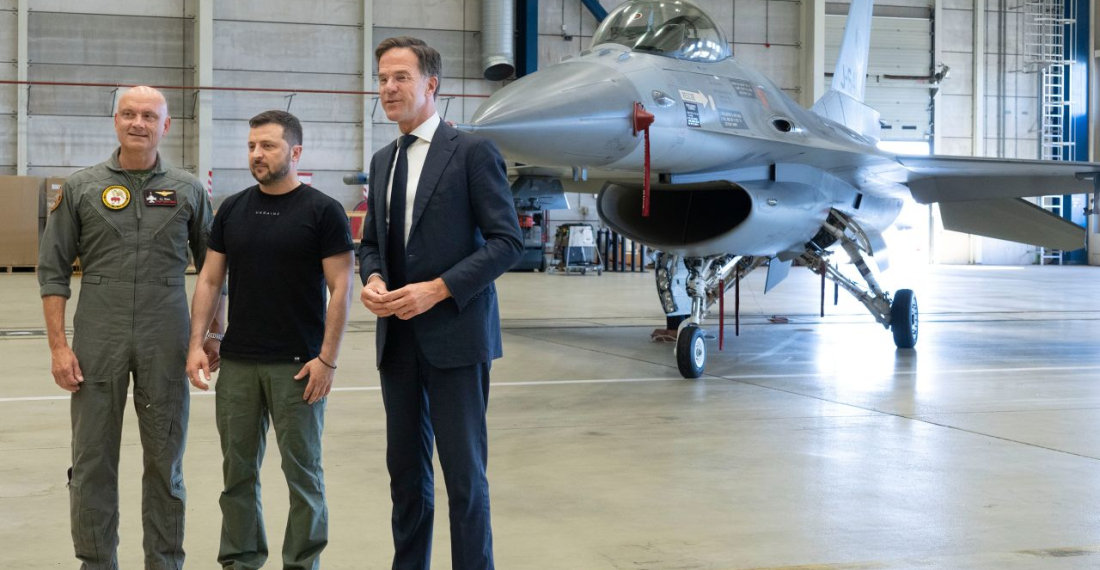The Netherlands and Denmark announced Sunday they will give F-16 warplanes to Ukraine, a long-awaited announcement that Ukrainian President Volodymyr Zelensky called an important motivation for his country’s forces, as they continue to repell Russian aggression.
After months of entreaties from Zelensky for F-16s to bolster the Ukrainian air force, the US recently gave approval for the Netherlands and Denmark to provide Ukraine the American-made jets. Zelensky traveled to both countries Sunday to finalize the delivery deals.’’F-16s will certainly give new energy, confidence, and motivation to fighters and civilians. I’m sure it will deliver new results for Ukraine and the entire Europe,″ the Ukrainian leader said.
Ukraine hopes the jets will give it a combat edge, after launching a counteroffensive against the Kremlin’s forces without air cover from Western aircraft, placing its troops at the mercy of Russian aviation and artillery.
Dutch Prime Minister Mark Rutte welcomed Zelensky to the Netherlands on Sunday. The two leaders inspected two gray F-16s parked in a hangar at a Dutch base in the southern city of Eindhoven. A few hours later, Zelensky and his wife were received by Danish prime minister Frederiksen, other Danish Cabinet ministers and Crown Princess Mary at the Skrydstrup air base in southern Denmark where Ukrainian pilots will receive F-16 training in coming months. The two leaders climbed into a Danish F-16 and tried out the seats.
Frederiksen said “hopefully” six fighter jets could be delivered around New Year, eight more next year and the remaining five in 2025.
“Please take this donation as a token of Denmark’s unwavering support for your country’s fight for freedom,” she said.
The Dutch and Danish governments are also spearheading a coalition that is working to train Ukrainian pilots to fly the advanced fighter jets.
Zelensky declined to say how many Ukrainian pilots would undergo training in Denmark and later in Romania, citing security reasons. Frederiksen said “more than 70” Ukrainian personnel were already in Denmark and getting ready to start training. The Danish Armed Forces said the Ukrainians must pass a security review and tests of their health and language skills before the training can begin.
“The training is expected to last a minimum of six months. Exactly how long it will take to teach Ukrainians to operate the F-16 capability cannot be said precisely, as it will depend on their experience and language skills, among other things,” the Danish Armed Forces said in a statement.
Officials have previously said that Ukrainian pilots will need six to eight months of training.
Sunday’s announcements came two days after the Netherlands and Denmark said the US had authorized them to deliver American-made F-16s to Ukraine in what was seen as a major boost for Kyiv.






